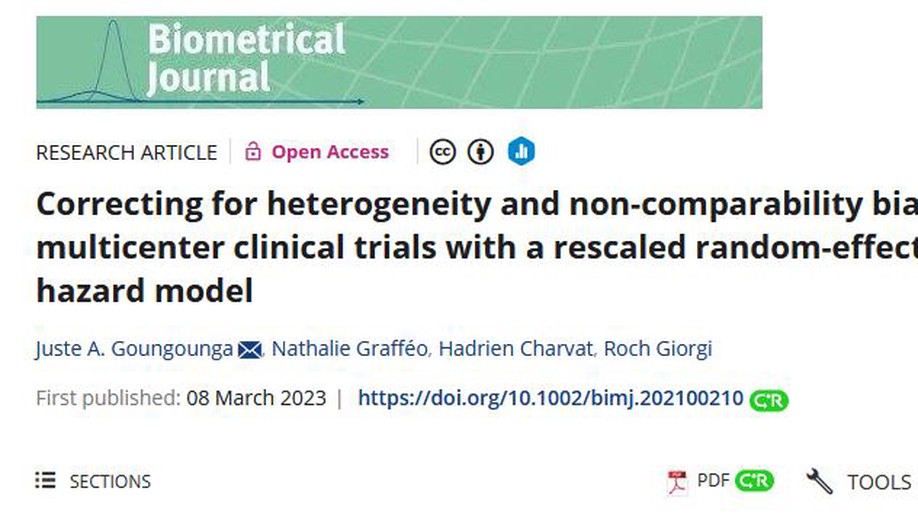Juste Goungounga
Lecturer-researcher (Associate prof.)
Ecole des Hautes Etudes en Santé Publique
ERL Inserm U 1309 - Recherche sur les services et le management en santé (RSMS)
Arènes (UMR 6051 Arènes)
Biography
Juste GOUNGOUNGA is an Associate Professor of Biostatistics and Health Data Science at the Ecole des Hautes Etudes en Santé Publique ( EHESP) and a researcher at the ARENES Laboratory (UMR CNRS 6051), affiliated with the INSERM U1309 team on “Research on Health Services and Management in Health” (RSMS). He has held this position since October 2022.
At EHESP, Dr. GOUNGOUNGA teaches courses on various topics, including French hospital discharge databases ( PMSI), and supervises students. He is also a member of the CENSUR working survival group. His research specializes in statistical methods for epidemiology, particularly non-communicable diseases like cancer, with a focus on identifying and quantifying health inequalities.
He received his medical degree from the University of Ouagadougou in 2012 and transitioned from clinical practice to biostatistics. He completed a Master’s in Public Health, specializing in quantitative and econometric methods for health research, and a Ph.D. in Clinical Research and Public Health with a focus on biostatistics from the University of Aix-Marseille in 2018. His Ph.D. thesis contributed to the extension of relative survival methods in the field of clinical research. While with the Joint Research Unit 1252 SESSTIM (Inserm / IRD / Aix Marseille Université), Dr. GOUNGOUNGA developed the xhaz R package for excess hazard modeling with inappropriate mortality rates. In January 2020, he joined the Burgundy Digestive Cancer Registry/University of Burgundy ( EPICAD team - UMR 1231) as a postdoctoral researcher, supported by the ARC Foundation for Cancer Research. His postdoctoral research focused on estimating time-to-cure for cancer patients, considering disparities in credit and insurance access.
His current research explores inequalities in cancer risk and mortality according to smoking status in patients with chronic kidney disease. Here is a link to my updated list of publications: Updated Publications LIST.
Interests
- Relative survival methods
- Multistate models
- Causal inference
- Statistical methods for disease mapping (e.g., cluster detection methods, Bayesian hierarchical modeling, multivariate disease mapping).
- Statistical Software Development in R
Education
-
Postdoctoral research, 2020
Burgundy University/Burgundy Digestive Cancer registry
-
PhD in Clinical research and public Health (option biostatistics), 2018
Aix Marseille University
-
Master of Public Health (quantitative and econometric methods in health research), 2014
Aix Marseille University
-
Doctor of Medicine, 2012
Université de Ouagadougou


